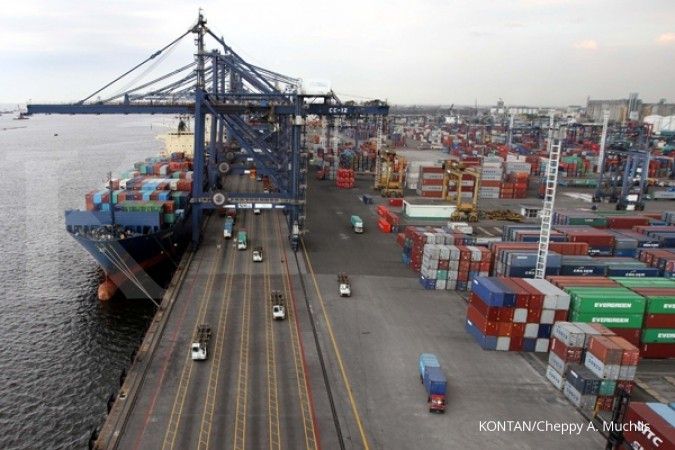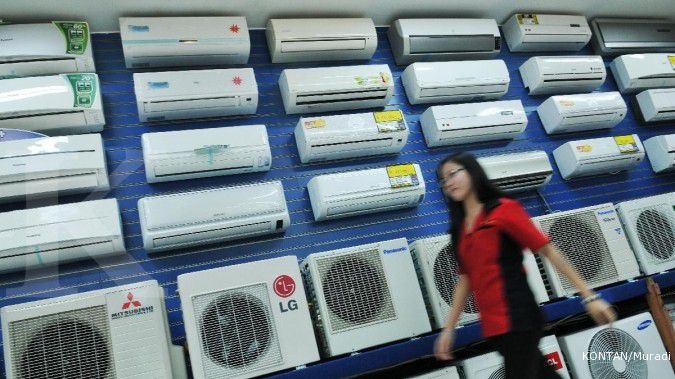JAKARTA. Business groups have cheered import duty rises on a wide range of manufactured goods that became effective on Thursday (23/7), expressing hope of a boost to domestic industry amid the current economic slowdown.
Indonesian Textile Association (API) chairman Ade Sudrajat said that the tariff increases would be beneficial to the domestic manufacturing industry, allowing fairer competition between locally made and foreign goods.
“This may help push up sales of local products amid the ongoing economic downturn,” Ade told The Jakarta Post.
As stipulated by Finance Ministry Regulation No. 132/2015 signed on July 8, import duties on consumer goods from processed food to vehicles have increased 30%, with exceptions for special products, such as alcoholic drinks, which will see hikes of up to 150%.
The arrangement is part of attempts to harmonize tariffs by imposing higher duties on finished products and lesser duties on raw materials and intermediate goods.
In the textile industry, significant production costs caused by higher energy costs and labor wages hinder competition with cheaper imports.
As with producers across a number of business sectors, textile manufacturers have felt the major impact of higher costs and weak demand. Indonesia’s economy expanded by only 4.7% in the first quarter, the lowest rate in nearly six years.
The textile industry trimmed production by 20% in the first quarter of this year and maintained low output through the second quarter, decreasing factory utilization.
Indonesian Food and Beverage Association (GAPMMI) chairman Adhi S. Lukman expressed a similarly positive response to the duty rises, describing the measure as “one step forward” to revise the inharmonious tariff system. It could also provide leverage to the local food and beverage industry by pushing up sales and encouraging production, thereby lowering costs, he added.
“I think with wider use of local products, domestic consumption will pick up and industrial capacity will also expand,” he said.
Sharing Ade’s expectation, Adhi said that the new policy might help increase sales in the second half of the year after disappointing growth in the first half.
Textiles, food and beverages are among hundreds of products that will be charged higher import duties. Textile products, including T-shirts, used clothes and corsets, will be levied between 22.5 and 35%, while food and beverage products, such as processed meat, candy and cookies, will be charged up to 30%. Alcoholic drinks will be imposed with duties up to 150%.
At present, Southeast Asia’s economy places modest duties on foreign goods at an average of 6.8%, lower than other emerging economies such as China (9.6%), Brazil (13.7%) and India (13%). It also sets fairly low duties on imported industrial goods at 6.6% on average, less than China (8.7%), Brazil (14.2%) and India (10.1%).
While it has embraced advanced tariff liberalization, Indonesia’s competitiveness index of 4.38% is below countries applying higher import tariffs, such as China (4.9%).
The tariff hikes comply with the rules of the World Trade Organization (WTO) and will not affect trading partners that have inked free trade agreements (FTAs) with Indonesia, according to Gusmardi Bustami, a special advisor to the trade minister.
Under its most favored nation (MFN) rule, the global trade governing body allows its members to apply import duties of up to 40 percent on a unilateral basis. Certain products, such as alcoholic drinks, have bound tariff rates up to 150 percent.
“We’re just trying to use our policy space. This is not a protectionist policy,” he told the Post, adding that the new arrangement would synchronize the inharmonious tariff system and improve the domestic business climate. (Linda Yulisman and Grace D. Amianti)
/2015/06/22/64778408p.jpg)











